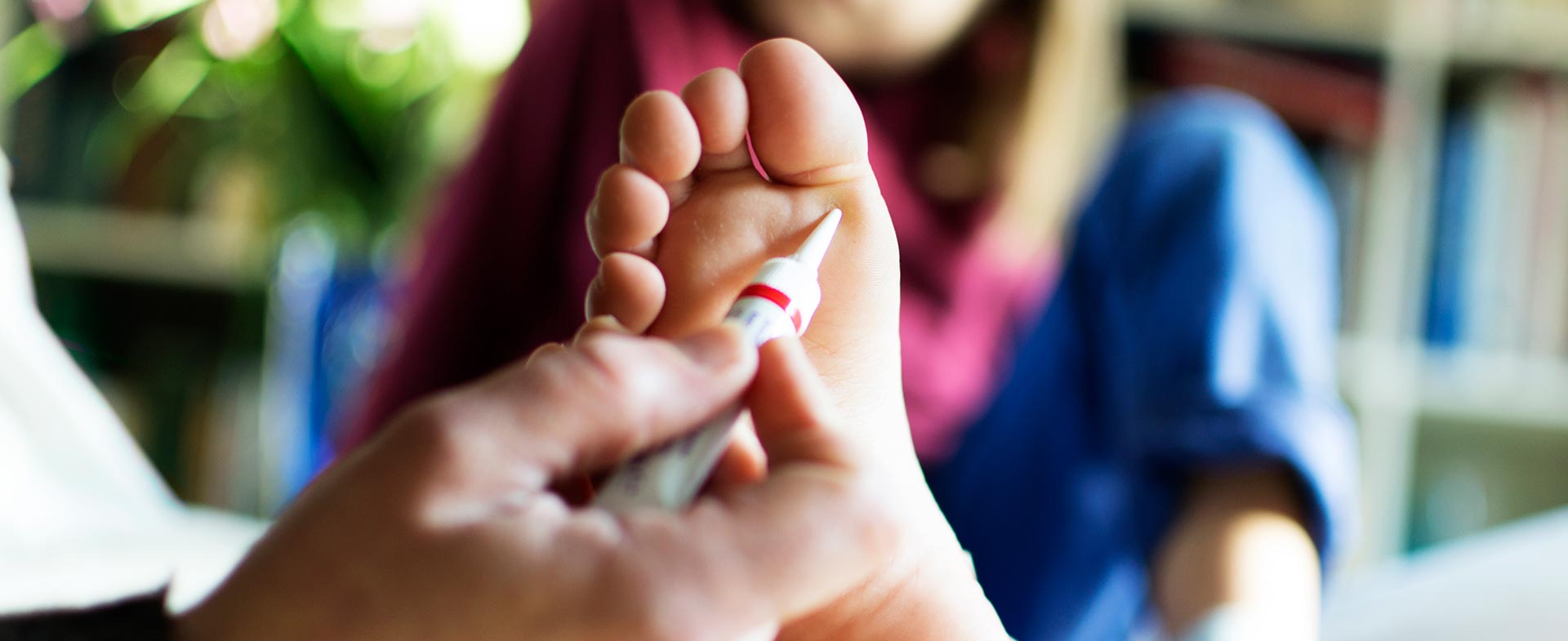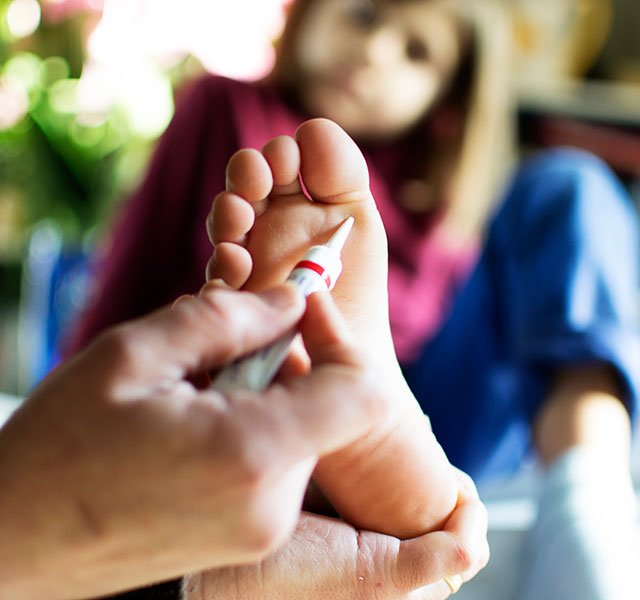Warts are gross. There's no way around that. But they're also incredibly common — and highly contagious. So, the faster you can get rid of a wart, the better.
"Common warts are usually harmless and often disappear on their own over time," says Laurie Kohen, M.D., a dermatologist at Henry Ford Health. "But many people don't want to wait, so they turn to over-the-counter or home remedies to eliminate the sometimes painful growths."
Warts: The Basics
Confused about how to best treat these skin nuisances? You're not alone! We asked Dr. Kohen for answers to your most pressing wart-related queries:
Q: What are warts?
A: Warts are essentially a skin manifestation of human papilloma virus (HPV). Once the virus comes into contact with your skin, it causes an infection. Warts can be large and bumpy or flat and small. In either case, they're more likely to crop up on broken skin — areas like bitten cuticles, hangnails or nicks from shaving. Children are more likely to get warts because their immune systems haven't yet built up defenses against HPV.
Q: How do you get exposed to the HPV strain that causes warts?
A: We get exposed to the virus during our daily routine. HPV thrives in warm, moist environments like yoga mats, gym equipment and even sweaty hands. Once you pick up HPV, it evades the local immunity of the skin and creates a skin lesion — a wart. Warts can be different sizes and shapes depending which strain of HPV you were exposed to.
Q: Where do warts typically show up?
A: There are many different types of warts, including common, flat, and plantar. Warts are more likely to crop up on your hands and feet, though they can also appear on other parts of the body. Genital warts are caused by an entirely different strain of HPV and require medical treatment.
Q: How does the strain of HPV that causes warts differ from the strain that causes genital warts or cervical cancer?
A: There are more than 150 different types of HPV. Each likes to invade a specific skin surface. More than 40 of these types attack the skin covering the sex organs, cervix and opening of the anus. Different strains cause common and plantar warts affecting the fingers, face and soles of the feet.
Q: What are the best ways to prevent warts?
A: Be conscious of your surroundings and take extra precautions in public places. Lounging at the community pool? Instead of walking around barefoot on the pool deck, wear flip-flops. Hitting the gym? Wipe off dumbbells and gym equipment. Be alert for small cuts and scrapes: HPV is a greater risk when there's a break in the skin. Most important, practice good handwashing. Not only will that help prevent the transmission of HPV, it will also help protect you from other infections.
Q: What are the best treatments for warts?
A: Over-the-counter treatments that contain salicylic acid can help break down thick skin, particularly when you use them in conjunction with an emery board or pumice stone. Just make sure not to use that same tool for any other purpose — and throw it away when the wart is gone. Another effective strategy: cover the wart with duct tape to “suffocate” the virus. Wear a patch of duct tape over the wart for several weeks and change it daily until the wart is gone.
Q: Which over-the-counter remedies are least effective?
A: Steer clear of over-the-counter remedies that promise to freeze the wart. While they're designed to simulate the liquid nitrogen you might get in a dermatologist's office, they don't get cold enough to eliminate the wart. In fact, under the right circumstances, these products could actually encourage the virus to spread.
Q: Can warts lead to health complications?
A: A true wart isn't likely to lead to major health concerns, but they may hurt. Even more important, warts can mimic health conditions that do require treatment, including certain forms of skin cancer. If home remedies aren't working and you notice the wart growing, changing, or if it limits your daily activities, see a dermatologist. There are plenty of in-office treatments available to obliterate painful lesions.
Wart Worries
Warts are not only highly contagious from person to person, but also within your own body. You can spread warts by touching a wart on your body or someone else’s, or by coming into contact with something a wart touched, such as a gym towel, bathmat or washcloth.
While you can't completely avoid being exposed to the strain of HPV that causes warts, there are several things you can do to minimize your risk of developing a wart:
- Wash your hands frequently.
- Maintain the integrity of your skin (no cuts).
- Moisturize regularly.
- Don't bite your nails.
- Use clean, fresh towels after you bathe and at the gym.
- Wear shoes when you're at a public pool or in a locker room.
You can treat most warts at home with over-the-counter remedies. But if the lesion doesn't disappear within a couple of months, it may be wise to see a dermatologist.
To find a doctor at Henry Ford, visit henryford.com or call 1-800-HENRYFORD (436-7936). Learn about our virtual care options available for primary care visits, as well as dermatology and many other specialty services.
Dr. Laurie Kohen is a dermatologist and sees patients at Henry Ford Medical Center locations in Detroit and Troy.



